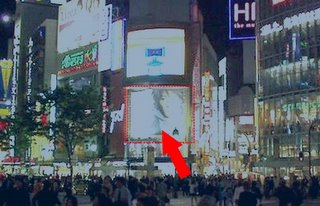 At the risk of gross understatement, virtual reality offers enormous transformative potential for individuals and society. That being said, VR's little brother, augmented reality (AR), will be no slouch either.
At the risk of gross understatement, virtual reality offers enormous transformative potential for individuals and society. That being said, VR's little brother, augmented reality (AR), will be no slouch either. AR will allow people to perceive the real world with a wide array of add-ons, such as helpful signs, maps, and even filters to screen out unwated parts of the real world (like flashing neon signs and other eye-sores). It will also enable people to interact with their environment in unprecedented ways, particularly in terms of information gathering. Esstentially, AR will apply digital technology to enhance the analog world.
Toronto fyborg, Steve Mann, has done considerable work in this regard. He's envioned an eye-tap device (i.e. a personal imaging system) that will empower future humans (or cyborgs, I suppose) by giving them control over their visual field -- a realm that has been all but monopolized by corporate interests and underfunded municipalities. Mann, who has also referred to AR as 'computer-mediated reality,' has hoped that this technology will develop outside of corporate circles, but it now appears that this opportunity may have been lost.
GeoVector Corporation and CyberMap Japan (AKA Mapion) recently announced the availability of Mapion Local Search (MLS) for mobile phones in Japan.
With MLS, users can walk down the street anywhere in Japan and point at over 700,000 objects such as buildings, shops, restaurants, banks, historical sites and instantly retrieve information on what they are looking at or find what they are looking for just by pointing their phone. Just like one uses a mouse to click on an object on a computer screen and retrieve information, users will be able to "Click on the Real World" using their mobile phone.
Eventually, it is hoped that users will be able to point their mobile phones at restaurants to get reviews, point at billboards and go directly to the advertiser’s mobile site for shopping, point at a movie poster and buy a ticket, and play a game by pointing at your friends.
While the potential for this is huge and virtually unlimited, it looks as though this service will act as yet another delivery mechanism for advertisments and for quicker access to online stores. Unlike Mann's version of AR, GeoVector's AR is not independent, accessible, or subversive.
But given the nature of technological development, the rise of open source, and burgeoning accessibility, I would have to think that Mann's vision for the common man's AR will eventually come to pass.
Tags: augmented reality, steve mann.

No comments:
Post a Comment
Note: Only a member of this blog may post a comment.